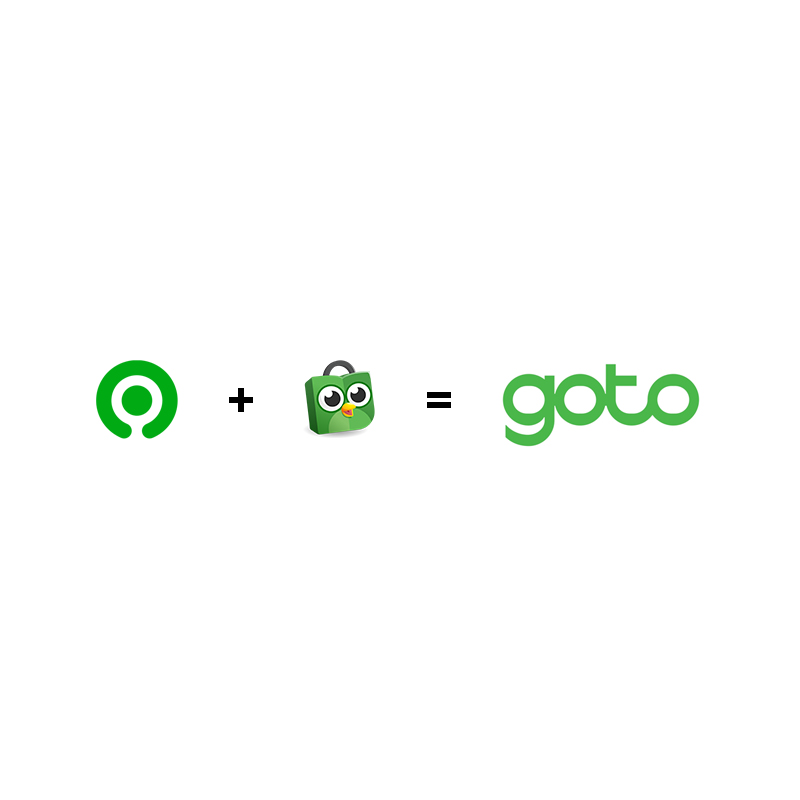
For most people, it's "let bygones be bygones." But for companies, it should be more like "in the good old days."
Big companies should never forget what and who helped them reached the status many others can only dream of having. Besides the leadership of capable leaders, hardworking employees and supports from investors, it's the users and customers who deserve most of the credit.
And this is why Gojek and Tokopedia aren't forgetting them.
After announcing 'GoTo', which merges Indonesia's ride-hailing giant and Indonesia's e-commerce titan, the entity aims to become the player that is "globally unique" and capable of performing in a "highly complementary ecosystem.”
Gojek’s Andre Soelistyo leads the combined business as GoTo Group's CEO, while Tokopedia’s Patrick Cao serves as GoTo Group President. Kevin Aluwi continues his role as CEO of Gojek, and William Tanuwijaya remains as CEO of Tokopedia, the two firms said in a joint announcement (1 ,2).
By merging, GoTo has a better chance in competing against the heavily-funded super app Grab, and the e-commerce giant Shopee.
But still, GoTo doesn't want to forget that it was once Gojek and Tokopedia, two separate and very different entities that complement each other.
Because of that, GoTo shall allow Gojek and Tokopedia to thrive and coexist as standalone brands within the strengthened ecosystem.
In other words, GoTo plans to keep the two companies operate in their own respective ecosystems that are open to other companies, including competitors.
This should answer some questions about the merger's impact on domestic business competition.
Tokopedia corporate communications vice president Nuraini Razak said that although GoTo would combine the companies’ mobility, e-commerce and financial services into one ecosystem.
And with that, Tokopedia and Gojek would remain separate brands and planned to keep their doors open to partnerships with other companies.
“Tokopedia will continue to collaborate with other strategic partners,” she said.
Gojek originally started as an online motorbike taxi service in 2010 but has since developed into a ‘super app’ offering over a multitude of services, ranging from food and grocery delivery, e-payments, ticketing, and even on-demand make-up-artists. Tokopedia on the other hand, provides digital products, such as credit cards, utility payments, game vouchers, and healthcare payments, in addition to its main consumer-to-consumer (C2C) business platform.
As of 2020, the combined gross transaction value of Gojek and Tokopedia reached $22 billion with over 1.8 billion transactions recorded in the same year.
The combined ecosystem of Gojek and Tokopedia and their reach, account to about 2% of Indonesia’s GDP.
The two have more 2 million registered drivers, more than 11 merchants, and more than 100 million active users.
By merging, the largest technology group in the Southeast Asian nation, born from a merger considered the country’s largest-ever business deal, GoTo aims to further tap into the huge potential of Indonesia's digital economy, which is expected to have a gross merchandise value of $125 billion by 2025.
While Gojek and Tokopedia shall thrive and operate like they normally would, GoTo's mission would be to go public, with a market valuation estimated at between $30 and $40 billion in both Indonesia and the U.S..
This would make it the first IPO by an Indonesian tech startup, and should pave the route for other unicorns to follow.
Considering that Indonesia is already Southeast Asia's fastest-growing internet economy, thanks to its more than 200 million internet users, the inception of GoTo should provide a huge potential in Indonesia's digital economy.
GoTo has the capacity to make Indonesia’s e-commerce and fintech industry more competitive and dynamic.